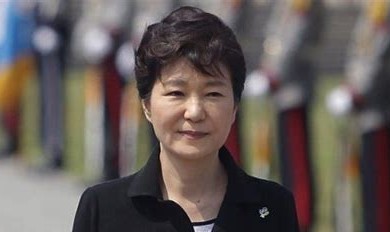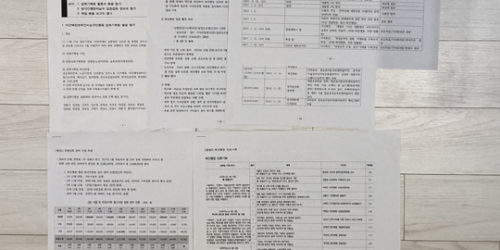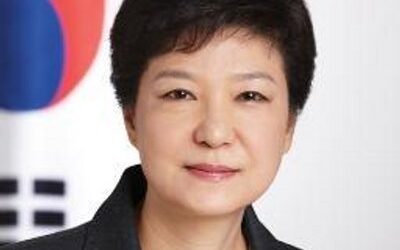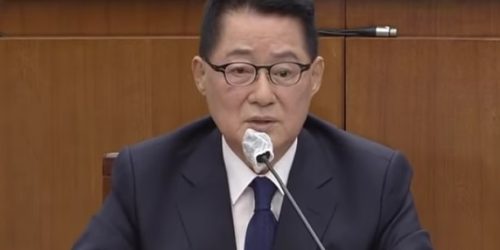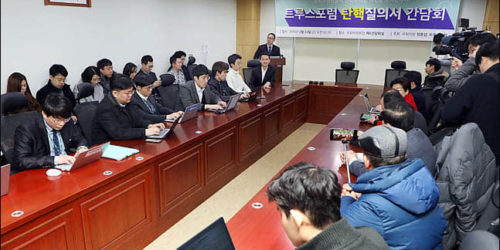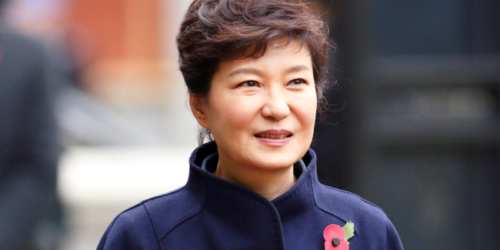Intelligence Special Activities Fund Increasing While NIS Core Function is Neutralized, Park Geun-hye Unjustly Jailed for the Fund, while Moon’s Blue House Continues to Receive the Fund
2020-12-11, Tara O
NIS Budget Increasing
Despite the expected removal of core capabilities from the National Intelligence Service (NIS, South Korea’s CIA), the NIS budget is actually increasing. In 2020, the NIS security budget was ₩565 billion ($514 million) and the Special Activities Fund (특활비) budget was ₩706 billion ($642 million), more than the security budget. (0:52) For 2021, NIS’s security budget has increased by 8.2% from this year (2020) to ₩746 billion ($678 million), which is a 50.2% increase from 2017, when Moon Jae-in became president. [Note: $1: ₩1,100 conversion is used.]
Soon after President Moon Jae-in took office in 2017, his administration has drastically reduced personnel, budget, and the number of entities that conduct counter-espionage operations. Now the ruling party is in the process of completely removing the core capability of the NIS through legislation. Despite the cuts in capability, the NIS budget has been rising dramatically since 2017, which is strange. It is unknown exactly how much the Special Activities Fund budget for next year will be, but if the 2020 budget is an indication, it would be more than the national security budget portion. NIS’s Special Activities Fund is meant to be used for national security or intelligence collection expenses. (54:55) For some reason, it is distributed to other government offices, including the Blue House, the Justice Ministry, the Unification Ministry, and the National Assembly, and it appears their use of the funds is unaccountable.
Park Jie-won, NIS, and the Special Activities Fund
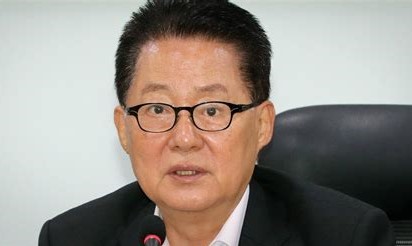
For what purposes has the increased budget been used and will be used? Perhaps Park Jie-won (박지원), the NIS director who Moon appointed on July 28, 2020 may know. Park was former president Kim Dae-jung’s right hand man. Park was jailed in 2006 for sending North Korea $500 million in exchange for Kim Jong-il meeting with Kim Dae-jung at the 2000 summit. During his nomination hearing on July 27, 2020, a document emerged, which was titled Agreement on Economic Cooperation signed by Park on April 8, 2000 (before the June 2000 summit) agreeing to pay North Korea $3 billion. Initially, Park was lost for words, then he denied it, but later he admitted discussing the $3 billion transfer.
The Moon Blue House and the Special Activities Fund
Moon Jae-in began his administration promising “transparency,” and conducted high-pressure investigations into NIS’s Special Activities Fund and revealing the details of the Fund as part of Jeokpae (deep rooted evil) cheongsan (liquidation/end)—a political purge. Consequently, numerous people were incarcerated. Due to the Moon administration turning the Special Activities Fund into a controversy and jailing political opponents and civil servants, it appeared that the Moon administration would dispense with it, but that was not the case.
On June 28, 2018, the Korea Taxpayers Association requested that the Blue House disclose information on “Special Activities Fund” expenses, but received an answer stating, “Because there is a risk of seriously harming national interests, we have decided not to disclose.” The Blue House was still receiving Special Activities Funds from the NIS. Additionally, as mentioned above, the NIS budget, which includes the Special Activities Fund, increased every year under Moon.
It was discovered in September 2018 that the Special Activities Fund budget for the Blue House was ₩9.65 billion ($8.77 million) in 2018, the same amount ₩9.65 billion ($8.77 million) in 2019, and again the same ₩9.65 billion ($8.77 million) in 2020, according to the data provided by the Blue House to the Liberty Korea Party lawmaker Choo Kyung-ho (추경호) of the National Assembly Planning and Finance Committee. Furthermore, the Blue House has instructed the NIS to provide the Blue House with additional Special Activities Funds beyond its original budget allocation.
Blue House’ Controversial Spending
National Assemblyman Shim Jae-chul (심재철), then Liberty Korea Party, after examining “duty expenses” of the Blue House and ministries, discovered that the Blue House spent ₩245.94 million ($224,000) in activities after 11 p.m. (231 cases) and on weekends and holidays (1,611 cases) over the period May 2017 (when the Moon administration began) to August 2018. The government’s Guidelines for Execution of Budget and Fund Operation Plan prohibits the use of work expenses during abnormal hours (such as late night after 11 p.m.), legal holidays, and Saturdays and Sundays.
Shim revealed his findings on September 27, 2018. The venues where the expenses incurred include beer bars, wine bars, other alcohol establishments, high-end restaurants with ₩120,000 ($110) per person menu, top sushi restaurants, department stores, movie theaters, spa, massage shop, etc. There were 236 cases of expensing at alcohol establishments, which totaled ₩31,325,900 ($28,500). In addition, there were 13 internet payments with business types not filled out (₩5,005,000 or $4,600), 3 beauty businesses (₩187,800 or $170), 133 department stores (₩15,667,850 or $14,250, used on weekends and holidays), 625 department stores (₩72,609,037 or $66,000, weekdays), 10 entertainment related businesses (₩2,412,000 or $2,200), and numerous cases of unclear usage.
The Blue House retorted that those expenses were not against the rules, since the Blue House is open 24 hours a day, 365 days a year. Many see this spending as a waste, if not an illegal use, of taxpayers’ money. At minimum, many violate the “Kim Young-ran Law” (김영란법), which does not allow a government official to receive a meal that cost more than ₩30,000 ($27).
Furthermore, the Blue House’s current budget for “managing” Blue House correspondents—domestic and foreign–is unlimited. During the Lee Myung-bak administration, the budget was ₩20 million ($17,700) a month and during the Park Geun-hye administration, it was cut to ₩3.5 million ($3,100) a month.
The unwieldy expenses of the Blue House under the Moon administration raise the question of whether the Special Activities Fund is being used for this and other questionable purposes.
National Assembly
For the National Assembly, the Special Activities Fund for 2018 was ₩6.27 billion ($5.7 million), but in 2019, it was cut 84.4% to ₩980 million ($89,000), and the National Assembly maintained the same amount ₩980 million ($89,000) in the 2020 budget.
In 2018, it was also discovered that every year, ₩2 billion ($1.8 million) of ₩8 billion ($7.3 million) in the National Assembly’s Special Activities Fund were remitted to the Nonghyup (Farmers’ Cooperative) without a specific recipient. It turned out the money was paid to all of the 300 lawmakers of the National Assembly, about ₩5.5 million ($5,000) each. The money that was supposed to be used for confidential activities was paid out to the lawmakers as if it were part of their salaries. These funds do not require spending details, thus oversight is difficult.
To make matters worse, the Special Activities Fund was used as an incentive pay. In 2012 and 2013, the National Assembly’s Secretariat also allocated more than ₩200 million ($182,000) of the Special Activities Fund to pay 50 lawmakers as an incentive for self-created awards, including ₩6 million ($5,500) per person for the “best legislator in legislative policy,” ₩4 million ($3,600) for “excellent legislator, and ₩3 million ($2,700) for the “party-recommended legislator.”
Park Jie-won, when he was at the National Assembly as a Democratic Peace Party lawmaker, was the recipient of the largest amount of the Special Activities Fund between 2011-2013, spending ₩590 million ($536,000) over three years. National Assemblyman Kim Jin-pyo (김진표), Democratic Party of Korea, was the second highest with ₩580 million ($527,000). Moon Jae-in’s former Senior Secretary for Political Affairs and former lawmaker Jeon Byung-hun (전병헌), Democratic Party of Korea, was the third with ₩380 million ($345,000).
Justice Minister Chu Mi-ae vs Supreme Prosecutor Yoon Seok-Youl
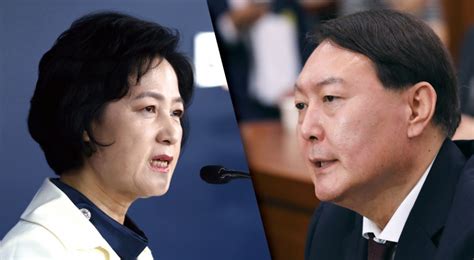
When Moon appointed Chu Mi-ae as the Justice Minister to replace the disgraced Cho Kuk, she took every action to prevent the Chief Prosecutor Yoon Seok-youl from investigating Cho Kuk’s corruption, the Blue House’s election rigging and corruption, and Blue House personnel-linked Optimus Fund and other investment fraud cases. Her latest effort was to try to oust Yoon himself, by charging and suspending him. At the National Assembly hearing on November 5, 2020, Chu accused Yoon of using “the Special Activities Fund like it is his pocket money.” Chu stated that the Supreme Prosecutor Received ₩9.4 billion ($8.5 million) this year (and will receive ₩8.4 billion or $7.6 million for next year) in Special Activities Funds in a lump sum to be used in any way he wants. The next day, Chu directed an investigation of the Supreme Prosecutors’ Office and each level of prosecution for the provision and allocation of the Special Activities Fund. On November 16, 2020, Chu stated the “Supreme Prosecutor’s pocket money is almost ₩5 billion” ($4.5 million).
Unfair Imprisonment of Park Geun-hye
With Chu’s highlighting the Special Activities Fund, those who are concerned about the erosion of rule of law and freedom in South Korea raised the issue of the unjust jailing of President Park Geun-hye. The Blue House receiving Special Activities Funds has been the norm during the previous administrations, including those of Kim Dae-jung and Rho Moo-hyun, and clearly, for the Moon administration as well. Moon Jae-in, who worked at the Blue House during the Rho Moo-hyun administration, should know that it has been the norm. Park, however, is the only president who was charged with a crime and unjustly sent to jail, which occurred under the Moon administration.
Contrary to the popular belief, Park’s current imprisonment is not due to the “corruption and bribery” from Samsung case (known as the “Gukjeong Nongdan” case in Korea) that many journalists often cite, as that case is still ongoing. They charged that Samsung providing access to horses to an equestrian national team was a bribe for Park, because one of the recipients, an Olympic gold medalist, was the daughter of Ms. Choi, who is a friend of Park–thus guilty by association, a concept that exists in places like North Korea. This is the case in which Park received 30 years imprisonment, then later 25 years during Appeals. The case is currently sitting at the Supreme Court. For more on her cases see here, here, here, and here.
The evidence-lacking “bribery” charge above was the initial charge that detained her, but the law allows the extension of detaining her for so long, up to two years maximum, which was on April 16, 2019. After that date, she must be released, because the case is not complete (it’s at the Supreme Court). Indeed, many of her supporters thought she would be released in April 2019.
However, they prevented Park from leaving jail by restarting the clock on another case, which found Park “guilty” of violating the Public Official Election Act and sentenced her to two years at the Appeals Court on November 21, 2018. This ruling kept her in prison beyond April 16, 2019. November 20, 2020 would mark two years, but she received a final verdict on yet another case, which continued to keep her in jail.
At the appeals on July 25, 2020, the judge found Park guilty of violating the Additional Punishment Law on Specific Crimes (bribery, etc.) [특정범죄 가중처벌 등에 관한 법률 위반 (뇌물 등)] (the Special Activities Fund case), and sentenced her to a 5-year jail term and a fine of ₩2.7 billion ($2.5 million), thereby continuing to keep her imprisoned.
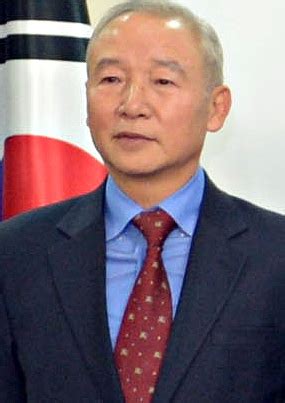
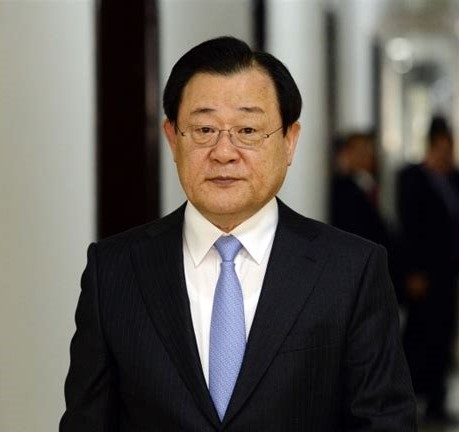
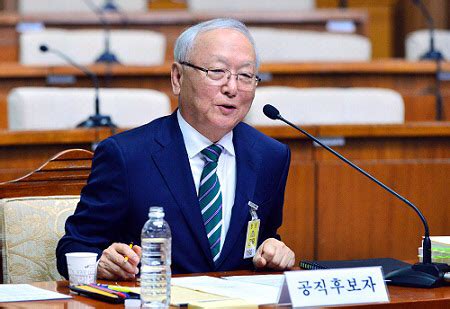
In this case, the 13th Criminal Division of the Seoul High Court (presiding judge Koo Hoe-geun, 구회근) found Park not guilty of “bribery” and “loss to state coffers” (국고손실 혐의) charges, stating there is insufficient proof, but ruled that she “colluded with the NIS directors to embezzle” ₩3 billion ($2.7 million) over 3 years (so $900,000/year). The ruling does not logically follow the “insufficient proof” statement, but it became the basis for continuing to keep Park in prison as well as to imprison 3 NIS directors—Nam Jae-jun (남재준), Lee Byung-ki (이병기), and Lee Byong-ho (이병호)—and 5 additional NIS personnel as part of the Special Activities Fund case and part of the Moon administration’s Jeokpae Cheongsan (political purge). (53:19) Nam was also former Deputy Commander of the ROK-US Combined Forces Command. Nam and Lee Byung-ki are in their 70s. Lee Byong-ho is a Vietnam War veteran and he is in his 80s. The Park Blue House received the Special Activities Funds from the NIS, which has been the norm, just as the Moon Blue House, Lee Blue House, Rho Blue House, and the Kim Blue House, but Park is the only president to be prosecuted and jailed.
Park has not attended the court for any of her cases since October 2017, after she realized that she cannot get fair trials according to the rule of law.
Double Standard for Moon’s Close Associates
The uneven application of law is palpable, since Moon’s political allies, who were found guilty of crimes (with ample evidence) were quickly released on bail as their trials continued.
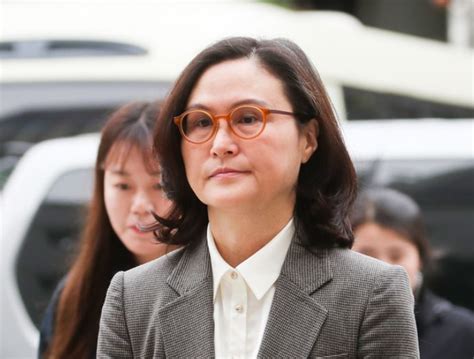
Former Justice Minister Cho Kuk’s wife Jeong Kyung-sim (정경심) was charged with various crimes, including corruption, insider trading, and destroying evidence, but was released after only 6 months, despite destroying evidence.
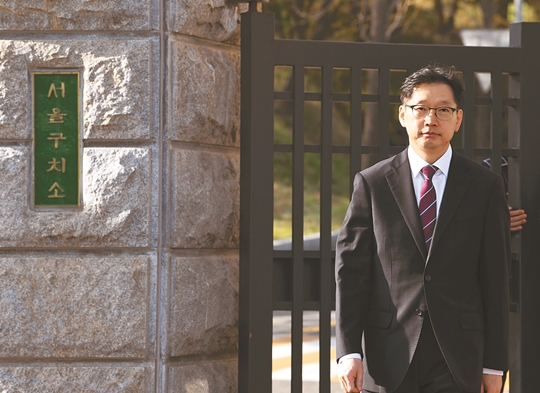
Similarly, while his appeal continued, Kim Kyung-soo (김경수), Moon’s close associate who later became the governor of South Gyeongsang Province, was also released on bail after only 77 days (January 30 to April 17, 2019), upon which he resumed his office as the governor. Kim’s crime of manipulating public opinion through massive online manipulation that may have changed the presidential election outcome in 2017 in favor of Moon—the Druking case—was so egregious that they had to appoint a Special Prosecutor, who submitted 1,333 pieces of evidence to the court.
Special Prosecutor Park Young-soo, who investigated the Special Activities Fund case received special activities funds himself
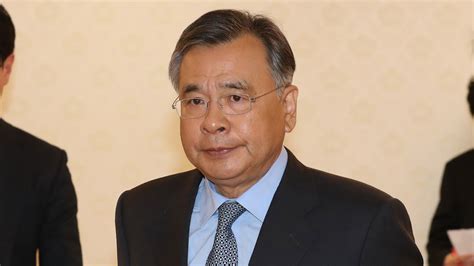
Ironically, Park Young-soo (박영수), an aggressive special prosecutor, who investigated the Special Activities Fund case with fervor, received Special Activities Funds of some ₩664 million ($604,000) in 2016 and 2017, it turns out. That was in addition to the regular budget to pay for his various expenses.
There are three main questions.
1. Why is the Special Activities Fund increasing when the NIS’s key function has been reduced and is likely to be removed? Is North Korea a potential recipient of these funds?
2. The Special Activities Fund continues to flow to the Blue House, the National Assembly, the prosecutors, and other parts of the government, including the Unification Ministry. Why do they need unaccountable funds, instead of a more transparent regular budget for their activities? One of the most critical aspects of representative democracies is government transparency.
3. Why is the only president prosecuted and jailed for the Special Activities Fund Park Geun-hye, especially when she didn’t even receive it personally, and not Moon Jae-in or other presidents? Why only the NIS personnel under Park Geun-hye and Lee Myung-bak, and not Park Jie-won, other lawmakers, prosecutors, etc? This raises further questions about fairness and the state of rule of law in South Korea.
